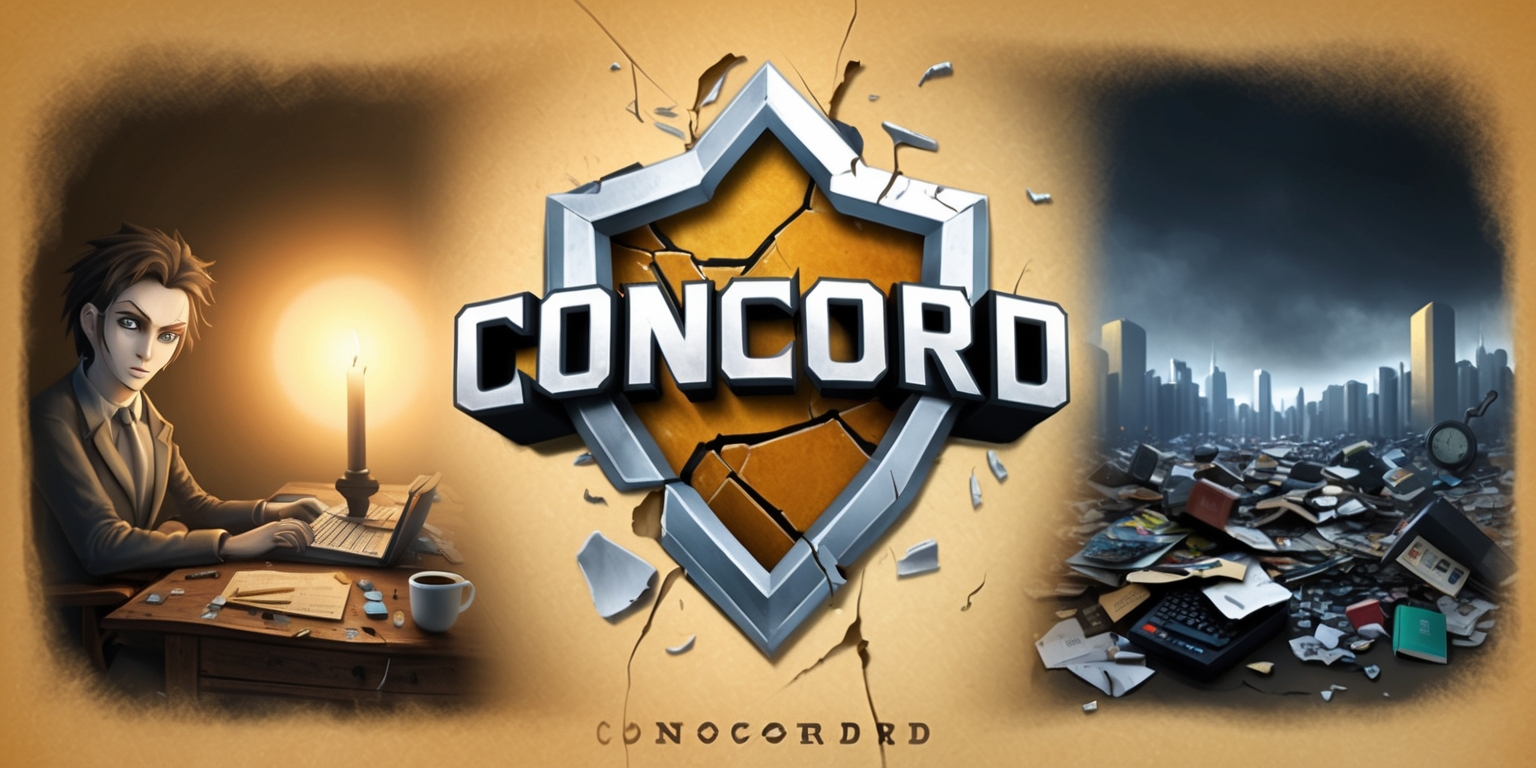The Rise and Fall of Concord: Lessons Learned from a Cautionary Tale in Game Development
- Jan 03, 2025
- 0

In an era when video games are not just forms of entertainment but also complex ecosystems with substantial financial investments, the recent saga of Concord serves as a cautionary tale. Firewalk Studios poured eight years of development time and resources into this ambitious project, only to see it close mere days after its launch on August 23, 2024. With a price tag of $40, the game's swift demise within 11 days raises questions about several factors that led to its downfall, from its monetization strategies to how it resonated with players. Let's delve into this intriguing case and explore all angles that contributed to its unexpected closure.
Initial Promises: The Hype Machine Starts
The anticipation built around Concord reached fever pitch leading up to its release. The game's first trailer was unveiled during PlayStation's State of Play presentation in May 2024, showcasing stunning visuals and action-packed gameplay. However, as excitement grew, so did skepticism regarding its gameplay originality, with fans quick to notice it lacked a distinctive flair compared to competitors.
Unfavorable First Impressions
Despite capturing attention through its visual appeal, many gamers felt something was amiss. During its beta phase, player engagement numbers were far from promising. Once released, Concord peaked at a mere 697 players on Steam during that critical launch weekend, suggesting widespread disinterest.
Monetization Missteps
One of the more contentious elements was the game's monetization strategy. Priced at $40, players were presented with an array of characters, maps, and gameplay modes at launch. Yet the reliance on additional cosmetic purchases quickly raised eyebrows. Players were offered the chance to customize their character looks through microtransactions—nothing that impacted gameplay, leading many to ask if this approach was truly viable in a saturated market.
Keep It Cosmetic: An Insightful Look at Purchasable Options

During an interview, Firewalk's director of IP, Kim Kreines, voiced the company's vision of monetization. While seasonal content was promised for free, the notion that players were limited to "only cosmetic" enhancements did not resonate well. In a landscape teeming with titles that offer more meaningful gameplay enhancements, this strategy felt limp and ultimately contributed to player dissatisfaction.
Comparative Analysis: The Competition Heats Up
The density of hero shooter games in the market hampered Concord’s chances of thriving. Existing titles had already established solid reputations and engaged user bases, making it challenging for a newcomer to carve out its niche. Many players opted for tried-and-true alternatives, leaving Concord adrift in turbulent waters.
Account Requirements: A Point of Frustration
To compound an already murky situation, the requirement of a PlayStation Network (PSN) account for cross-play and progression further alienated potential players. This move was justified as a means to unify the player base, yet it only bred more confusion and animosity. Rival games, such as Helldivers 2, managed to implement cross-play without placing such stipulations on players, making it frustrating for those wanting a straightforward experience.
Character Critique: A Missed Opportunity
Beyond gameplay mechanics, there was considerable critique about the characters themselves. Players found the character designs uninspired, lacking the depth and backstory that cultivates a connection with the audience. Instead of standing out, they felt like they were merely placeholders in a crowded genre.
Gameplay Mechanics: Falling Flat
The core gameplay did not perform as anticipated, leading to accusations of being too generic and lacking innovation. This was particularly damaging, as players are drawn to titles that promise a uniquely engaging experience. Unfortunately, Concord's offering felt bland in contrast to what had previously been accessible in the market.
The Role of Timing and Market Saturation
Timing in the gaming industry is critical. With so many competitive releases around Concord's launch window, including well-established titles, drawing players away proved increasingly difficult. The crowded nature of the market provided little room for a newcomer with limited differentiators.
The Ripple Effect: Player Feedback and Reactions
The outpouring of player feedback was quick and lethal. Many expressed feelings of betrayal after years of anticipation, while others savored the ironies of the game's rapid downfall. The community rallied, sharing tales of disappointment and misgivings, which likely contributed to the further decline in an already dwindling player count.
Analyzing Developer Strategy: What Went Wrong?
In hindsight, Firewalk’s strategies regarding Concord appear misguided. Decisions such as a high entry price combined with cosmetic-only monetization went against the industry's shift toward free-to-play models supported by microtransactions. The feeling of being overcharged for a product that fell short of player expectations added fuel to an already hot debate.
The Aftermath: A Lesson in Expectations
The swift closure leaves Firewalk with valuable lessons on managing player expectations. For games positioned as live services, developers must understand that quality must be met with engaging and innovative features to retain and attract players. Lower costs paired with a wider range of monetization options may have helped uphold the community's interest.
Looking Forward: What Lies Ahead for Firewalk Studios?
As Firewalk Studios reflects on its experiences with Concord, the future may look uncertain for the team as they regroup to reassess their strategy. Continuous dialogues about player preferences and market trends will be essential for crafting their next project. Whether they opt to embark on a similar endeavor or pivot to a different project will be crucial decisions moving forward.
Conclusion: A Reflection on Industry Standards
Concord’s downfall serves as a stark reminder to developers about the intricacies of launching a live service game amid stiff competition and market saturation. With the gaming audience less forgiving and more discerning than ever before, studios must hone their vision, backing it with sound strategies designed to captivate players from the outset. As the industry evolves, the lessons learned from Concord will undoubtedly shape the future trajectories of many upcoming titles.